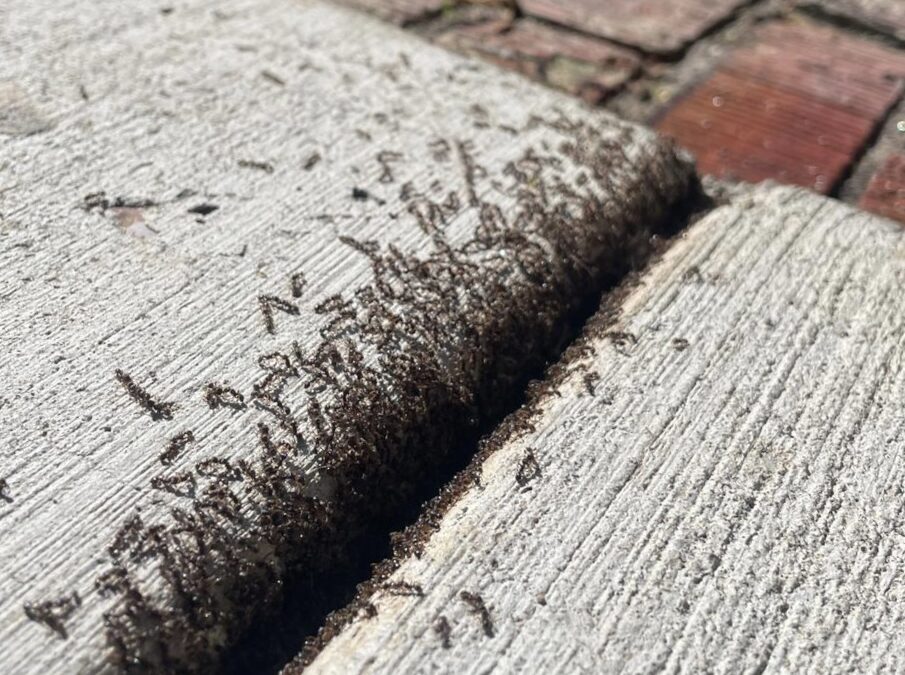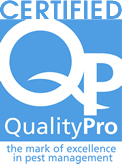We’re well aware of the surge in insect activity during spring and summer. From ants infiltrating the pantry to wasps buzzing around the eaves and patio table, and spiders seemingly occupying every nook and cranny (although they’re not technically insects), it’s a familiar scenario. Naturally, you’re eager to bid them farewell, so you either search for a pest control company or fortunately already have one scheduled for their next visit. Regardless, let’s assume that I’ll be at your house in two days, fully equipped to control all those pesky bugs and restore tranquility to your home.
Nothing is ever quite that easy though. It’s important to note that not all insects are pests; in fact, many of them play a vital role in maintaining the balance of our ecosystems, and therefore keeping me, you, and everyone we love alive. Pollinators, including various insects, are essential in ensuring that I can enjoy a delicious side of bacon with my eggs and toast, so let’s not mess that up for me.
As a Pest Control Technician with Good Earth, my job is to perform the most thorough and comprehensive pest service that I can in any given situation while being safe and responsible with the products that I use. In the warmer parts of the year, when the flowers are blooming and the gardens are being planted, that balance becomes harder and harder.
So here I am, taking to the keyboard with some tips for you… the customer. This sage advice will help you get the best service possible when a pest control company shows up at your door. If everyone does their part well, the pollinators won’t even know that we were there. Sound good? I think so.

-
Don’t plant food next to the house.
This is a big one. A responsible pest control technician will not service an area where there are edible plants. Everyone loves strawberries and often, they plant them right next to the foundation. From there they just continue to spread. Pretty soon they take up an entire side of the house and that’s an entire side of the house that isn’t being properly serviced during our visit.
This goes for all eatables including herbs, fruit trees and even berry bushes out of season. If you can eat it, don’t plant it right next to your house. And, if you must have that sweet basil plant at your doorstep, then plant it in a pot. This allows you to relocate it temporarily while your service is being performed.
-
Burn your bridges.
Relax, I don’t mean this literally (although it is healthy to set clear boundaries). What I’m talking about is a strategy to prepare for a professional service. You see, during a treatment we are trying to isolate the home from the environment around it. This is often done with a perimeter application that goes around the house much like a moat around a castle. Your castle.
Think of the sugar ants and spiders as the invading hordes. Flowers, trees, bushes, or any long grass touching the home act as the siege engines with which the ants will breach your defenses and infiltrate your walls. So, no bridges across the moat, no gaps in the defenses. Don’t burn it, just trim it back.
-
Do a lap.

We’re all guilty of it, whether it’s plywood leftover from the bathroom remodel, coolers and crab pots from cleaning out the boat, or just kids toys and bikes, we all have storage up against the house. Pest technicians will move and work around things the best they can but only to a point. We only have one free hand, and we don’t want to damage your stuff. If you know we’re coming, do a lap and move your storage. You can always put it back after the material dries. Remember, no bridges.
-
Just mow it.
All plants in Oregon grow quickly during the spring and summer. Lots of sun and plenty of water, so even a few days after mowing the lawn, flowers like clover and dandelions can bloom again. This will attract all number of beneficial pollinators. While we do everything in our power to mitigate it, pesticide drift is always a possibility. Mowing the day before and getting rid of all those blooms close to the house means we can service your home more effectively without risking our honey-loving friends or their bumbling cousins.
Following these guidelines, we can protect both ourselves and the environment. Through adequate preparation for pest control services, we ensure safety and effectiveness. Additionally, we significantly minimize the risk of exposure to pollinators. At Good Earth Pest Company, we firmly believe in low-impact, responsible, and effective pest control. If you share our values, then give us a call when you need some help.
Don’t mow it for me, mow it for the bees.




